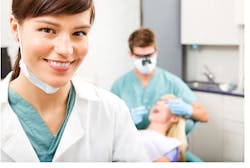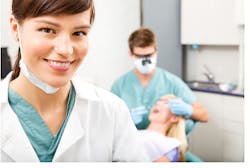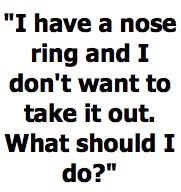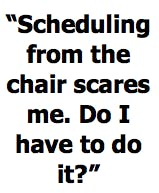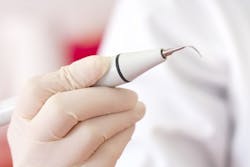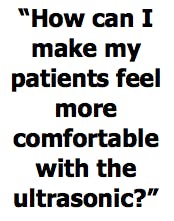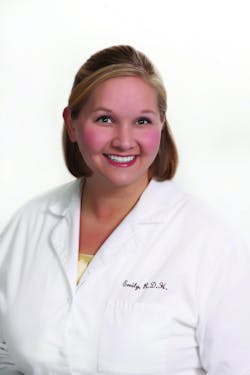Ask Emily: Nose rings, scheduling from the chair, and working with sensitive patients
Emily Boge, RDH, BS
May 23, 2013
Dear Emily,
I’m not allowed to wear my nose ring for clinic and professional events, such as when speakers come for guest lectures. I don’t want to take my nose ring out permanently. What should I do?
-Olivia
Dear Olivia,
I suggest placing a clear acrylic bar or fishing line through the hole to prevent healing closure. Maintaining professionalism to the highest standards will decrease your chances of being discriminated against based on your facial jewelry. Consider it part of your uniform to remove jewelry at the beginning of each day.
Thursday Troubleshooter: Piercings and tattoos on dental office employees
Dear Emily,
I recently took a job at an office where I was asked to schedule all my patients back for their next hygiene appointment directly from my dental chair. This scares me because I have never scheduled appointments before. I feel this is more of an administrative job, but I do not want to complain too much to my new boss. Is this standard in offices?
-Sherrie
Dear Sherrie,
If you ask experienced hygienists this question, they’ll all generally approve of scheduling from the chair for four main reasons: you know your patients better than the administrative staff, you know the time increments necessary for each patient, you know your limitations and your patients’ limitations, and you can be in charge of creating your ideal day.
Eventually you will get to the point where you know your patient’s job schedule, lunch time, and preferences for appointing. It will take you 20 seconds to offer them a time, get an appointment booked, and print a card.
My advice for you is to try it for a couple of months and see how you do before you worry about whether or not it will work. If you feel it’s not working after two months, have a talk with your doctor or administrator.
Dear Emily,
I was trained in school to use the ultrasonic, and I met all competencies to pass clinic. Unfortunately, since I have been in the office, I find that many patients do not tolerate the use of ultrasonic instruments when I use them. What can I do to improve my skills or make my patients more comfortable when I use the ultrasonic?
-Stacey
Dear Stacey,
Many clinicians will admit there is a huge learning curve to using the instrument, regardless of what system you have in the office. Is the instrument you are using in the office the same as the one you used in school? It could be that you are using a technique that is meant for a different type of machine. Call the manufacturer of your machine and ask for guidance, or check their website. Many manufacturers have high quality how-to presentations on YouTube that may help.
Many new tips are available in smaller sizes that reach to greater depths. These tips must be maintained because some are quite sharp on the ends. Many continuing education hands-on courses exist to train hygienists on these innovations.
It is also very important that you keep the tip moving with an ultrasonic. Educate the patient a bit before you begin the procedure with a simple explanation, such as, “Joe, I’m going to use a gentle power-washer to clean around your gums, and I’ll suction out the water as I go. If you need a break, let me know.”
In addition, I have found it quite helpful to use an arginine desensitizing paste prior to using the ultrasonic scaler for many patients. It sooths and protects the root surface for those who have more sensitivity to begin with.
Good luck as you continue working with the ultrasonic instrument and perfect your technique!
---
Resident hygiene expert Emily Boge answers your toughest questions on professional relationships with instructors, employers, and patients, what to use and know in the clinical setting, and how to successfully make the transition from student to professional. Send your questions to [email protected], and you may see it in next month’s column!
Previous "Ask Emily" columns:
Ask Emily: How to get along with instructors and what you should know about ordering instruments for your first operatory
